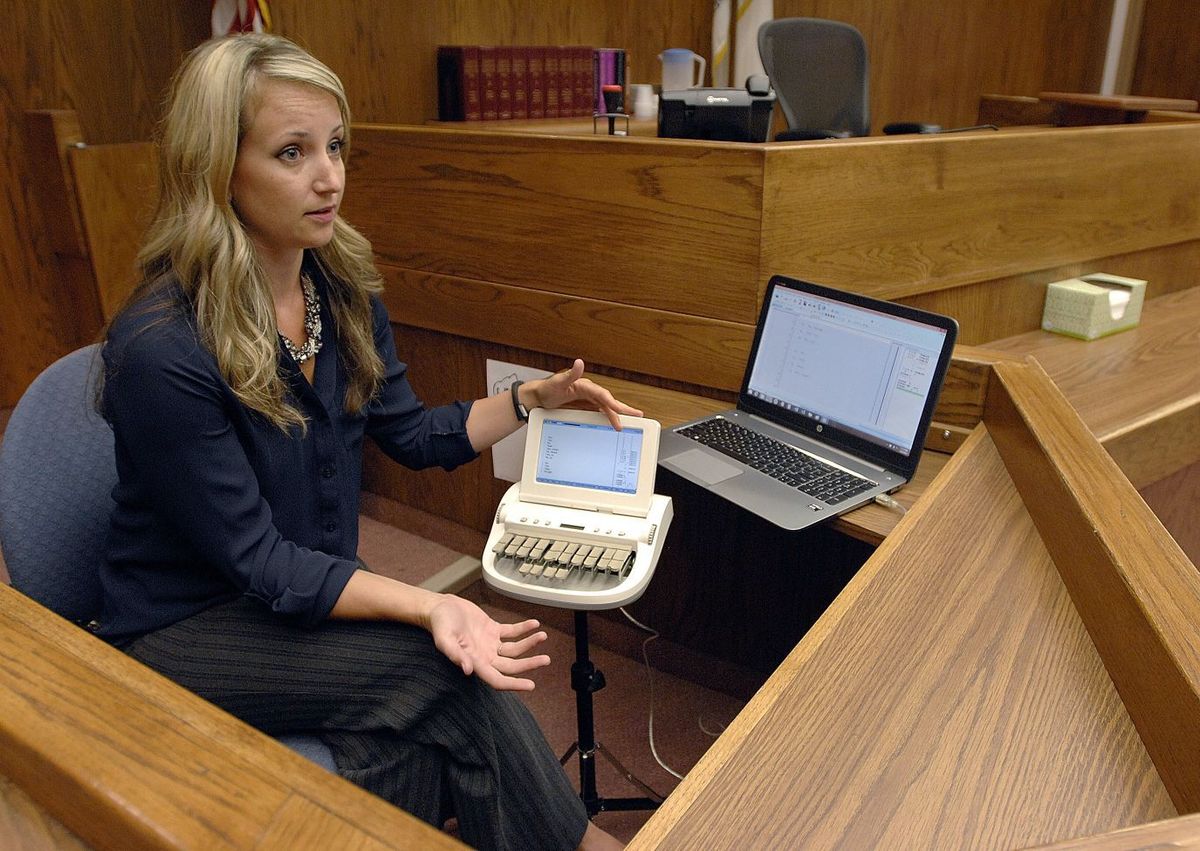Advanced Court Reporting Technology for Seamless Legal Paperwork
Advanced Court Reporting Technology for Seamless Legal Paperwork
Blog Article
Comprehending the Significance of Court Coverage in Legal Provider and Proceedings
Court coverage plays a pivotal function in the legal landscape, offering as the foundation of precise documentation in different legal process. By providing verbatim records, court reporters make sure that every testimony and disagreement is diligently recorded, thereby guarding the stability of the judicial process.
Duty of Court Reporters

In addition to transcription, court press reporters are usually charged with handling and preserving the flow of procedures. They must be competent in lawful terminology and have an extensive understanding of courtroom procedures to guarantee that the record shows the context and subtleties of the dialogue. Their work may likewise prolong past conventional courts, including management hearings, mediations, and various other lawful settings where documentation is important.
Furthermore, court press reporters may supply real-time reporting, allowing immediate access to records during procedures, which can be crucial for the efficient management of justice. By ensuring that an exact record is kept, court reporters promote the stability of the lawful procedure, offering and promoting appeals as a crucial resource for attorneys in their pursuit of justice.
Importance of Accuracy

The role of accuracy extends past simple transcription; it incorporates the capacity to capture the subtleties of speech, including tone, focus, and non-verbal cues, which can be vital in understanding the context of declarations made. An accurate record ensures that all events included-- juries, lawyers, and judges-- have accessibility to the same info, promoting fairness and openness in the judicial process.
Additionally, accurate transcripts are essential for the appellate procedure, where greater courts depend on them to evaluate reduced court decisions. Errors can jeopardize the end result of an appeal, potentially impacting a party's legal rights and liberties. Thus, the dedication to accuracy in court coverage is not just a professional commitment but a keystone of justice that promotes the regulation of law.
Sorts Of Legal Process
Covering a broad selection of lawful contexts, court press reporters are vital in numerous types of lawful process, each needing distinct methods and abilities. Amongst one of the most common types are civil lawsuits, criminal tests, and management hearings. In civil litigation, stenotype reporter capture testimonies, activities, and depositions, guaranteeing that every information is recorded accurately for prospective appeals or settlements.
In criminal trials, the duty of court reporters ends up being much more important, as they transcribe all facets of the procedures, including court choices, witness statements, and punishing stages - Court Reporting. The precision and immediacy like it of these records are paramount, offered the potential effects for accuseds and the stability of the judicial system
Management hearings, often carried out by governmental firms, likewise count on stenotype reporter to preserve official records of process. These hearings can entail disputes concerning regulatory conformity, work concerns, or professional licensing, demanding precise see post documentation.
Additionally, specialized procedures such as adjudication and arbitration need court reporters to catch the nuances of arrangements and arrangements. Each kind of legal action offers unique obstacles, underscoring the relevance of experienced court press reporters in upholding the integrity of the lawful process.
Innovation in Court Reporting
Innovations in innovation have transformed the field of court coverage, enhancing both efficiency and precision in the transcription procedure. Traditional approaches of hands-on note-taking have been supplemented and, sometimes, changed by innovative electronic tools that enhance process and improve precision (Court Reporting). Stenotype reporter currently utilize sophisticated steno equipments furnished with real-time transcription capabilities, permitting for prompt access to a verbatim account of proceedings
In addition, the combination of speech recognition software has actually even more changed the coverage landscape. This modern technology makes it possible for the automatic transcription of spoken words, considerably minimizing the moment required for producing main records. In addition, cloud-based systems promote very easy storage and access important source of records, making sure that lawyers can access necessary files from anywhere, any time.
Video conferencing devices have actually also become essential components in remote depositions and hearings, helping stenotype reporter catch process in real-time, no matter of location. The mix of these technical developments not just improves the precision of legal paperwork but also supports a much more reliable and versatile lawful process. As the area remains to develop, embracing these innovations will be vital in fulfilling the growing demands of the lawful sector.
Ethical Factors To Consider in Reporting
The assimilation of technology in court coverage brings with it a collection of honest factors to consider that professionals have to browse very carefully. As stenotype reporter significantly utilize digital tools, concerns bordering stability, precision, and confidentiality come to the forefront. Protecting sensitive info is vital; reporters must make sure that any kind of digital records are firmly saved and shared only with accredited people.
In addition, the precision of transcriptions is crucial. Using software program for real-time coverage does not discharge court reporters from the duty of guaranteeing that the last item is precise. Honest responsibilities dictate that any kind of errors need to be without delay fixed and interacted to appropriate celebrations.

Lastly, conformity with lawful criteria and sector regulations is essential. Court reporters must stay notified about advancing honest guidelines to copyright the trust fund put in them by the legal system. By resolving these moral factors to consider, stenotype reporter can remain to supply important services in legal process while maintaining public self-confidence.
Conclusion
In conclusion, court reporting plays a vital function in the legal system by making certain reliable and accurate documents of judicial process. The thorough work of stenotype reporter promotes the stability of the lawful process and supports the legal rights of people included. The combination of technology enhances performance while maintaining moral standards. Ultimately, the relevance of court coverage can not be overemphasized, as it serves as a crucial structure for fairness, openness, and the efficient administration of justice.
Court coverage plays a critical role in the legal landscape, serving as the foundation of precise paperwork in various lawful procedures.Court reporters consistently play a vital function in the judicial process by producing precise, verbatim transcripts of legal proceedings.Furthermore, exact records are crucial for the appellate process, where greater courts count on them to examine reduced court decisions.Treatment a broad variety of legal contexts, court press reporters are crucial in different kinds of lawful process, each requiring unique methods and skills. By dealing with these ethical considerations, court press reporters can proceed to offer vital services in lawful procedures while maintaining public confidence.
Report this page